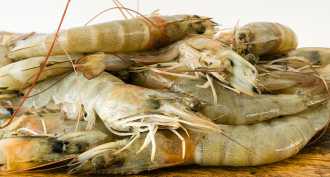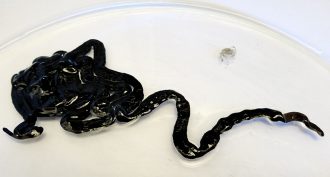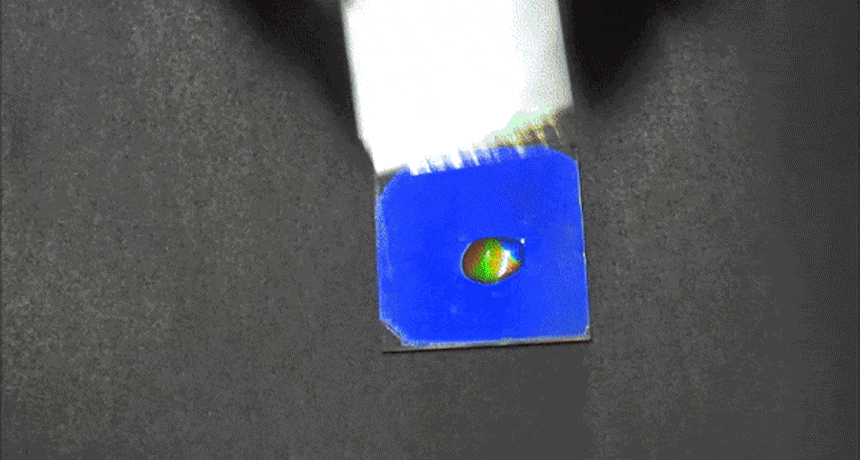Chemistry

Educators and Parents, Sign Up for The Cheat Sheet
Weekly updates to help you use Science News Explores in the learning environment
Thank you for signing up!
There was a problem signing you up.
-

-
 Chemistry
ChemistryBioplastics could put some shrimp in your Barbie
Teen researchers are looking to natural materials like shrimp shells and banana peels to make plastics ecofriendly and biodegradable.
By Sid Perkins -
 Planets
PlanetsAsteroids may have delivered water to early Earth
Scientists shot mineral pellets at a simulated planet. It showed an impact wouldn’t have boiled off all of an asteroid’s water.
-
 Animals
AnimalsChemicals from the world’s longest animal can kill cockroaches
The stuff in this sea worm’s slime can kill off green crabs, too.
By Susan Milius -
 Chemistry
ChemistryHard-to-burn ‘smart’ wallpaper even triggers alarms
Scientists have made wallpaper that won’t easily burn. And embedded nanowires can be linked to a sensor to sound an alarm when the paper gets too hot.
-
 Chemistry
ChemistryBanana plant extract can slow how fast ice cream melts
Food scientists now show that adding these tiny plant particles to ice cream may delay the rate at which this treat melts into a soupy mess.
-
 Materials Science
Materials ScienceLight could make some hospital surfaces deadly to germs
A new surfacing material can disinfect itself. Room lighting turns on this germ-killing property, which could make the material attractive to hospitals.
-
 Chemistry
ChemistryCool Jobs: Diving for new medicines
Scientists mix research with underwater adventure as they search the oceans for new chemicals to treat infections, cancer and more.
-
 Animals
AnimalsNature shows how dragons might breathe fire
Fire-breathing dragons can’t live anywhere outside of a book or TV. But nature provides some guidance as to how they might get their flames. If they existed, anyway.
-
 Chemistry
ChemistryMoisture unmasks camouflaged message
Researchers have developed a new type of chemical that will mask some hidden message — until you add water.
-
 Chemistry
ChemistryHuman waste could power plastic-making in space
Someday recycled urine and exhaled breath could feed specially engineered yeast to make plastics and other useful chemicals on long space missions.
-
 Chemistry
ChemistryOlympic ski racers use chemistry to enhance their performance
The chemistry of ski wax plays an important role in whether a skier wins or loses. They need a wax that helps them slip speedily downhill yet grip well uphill.
By Eric Niiler